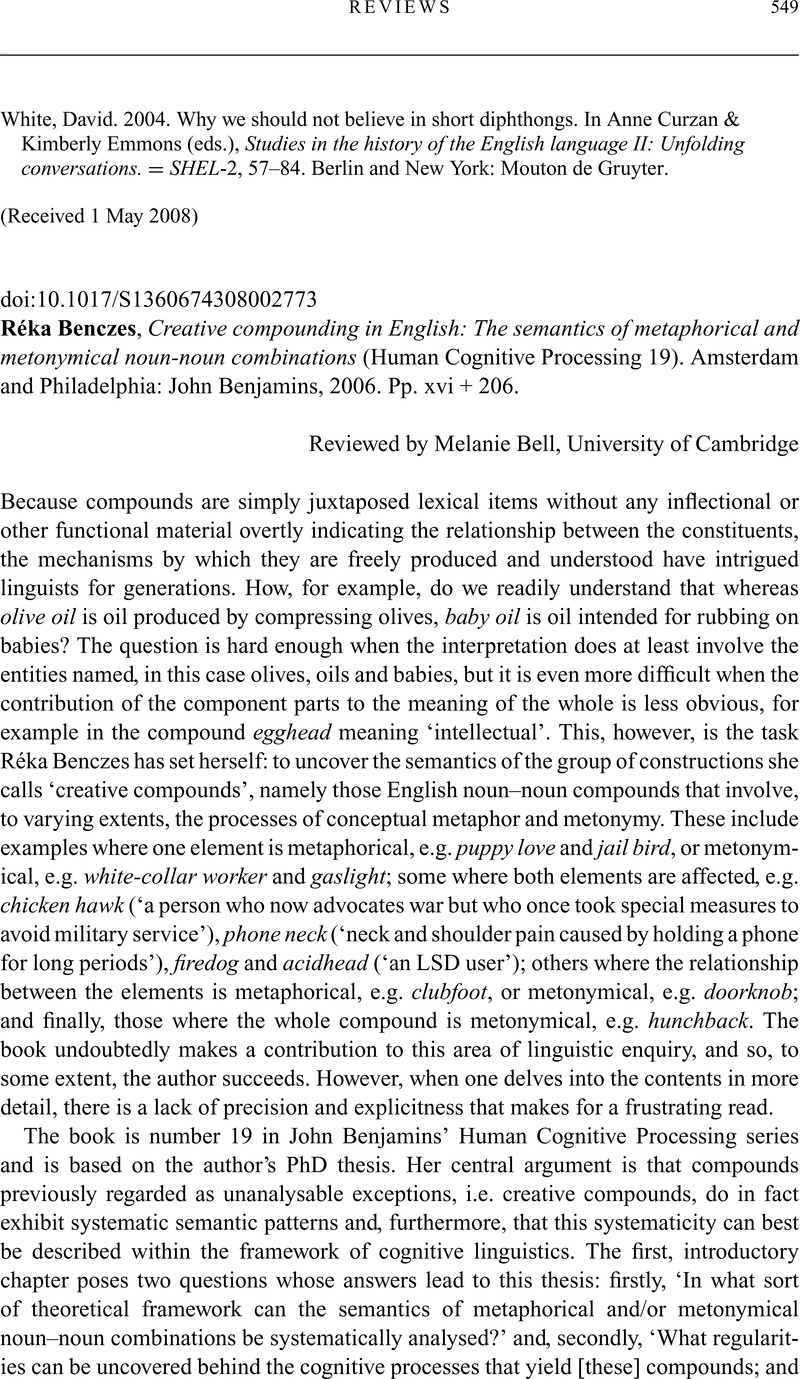No CrossRef data available.
Article contents
Réka Benczes, Creative compounding in English: The semantics of metaphorical and metonymical noun-noun combinations (Human Cognitive Processing 19). Amsterdam and Philadelphia: John Benjamins, 2006. Pp. xvi + 206.
Review products
Réka Benczes, Creative compounding in English: The semantics of metaphorical and metonymical noun-noun combinations (Human Cognitive Processing 19). Amsterdam and Philadelphia: John Benjamins, 2006. Pp. xvi + 206.
Published online by Cambridge University Press: 01 November 2008
Abstract
An abstract is not available for this content so a preview has been provided. Please use the Get access link above for information on how to access this content.

- Type
- Reviews
- Information
- Copyright
- Copyright © Cambridge University Press 2008
References
Bauer, Laurie. 2001. Morphological productivity. Cambridge: Cambridge University Press.Google Scholar
Dirven, René & Verspoor, Marjolijn. 1998. Cognitive exploration of language and linguistics (Cognitive Linguistics in Practice 1). Amsterdam and Philadelphia: John Benjamins.Google Scholar
Sweetser, Eve. 1999. Compositionality and blending. In Janssen, Theo and Redeker, Gisela (eds.), Cognitive linguistics: Foundations, scope, and methodology (Cognitive Linguistics Research 15), 129–62. Berlin: Mouton de Gruyter.CrossRefGoogle Scholar


